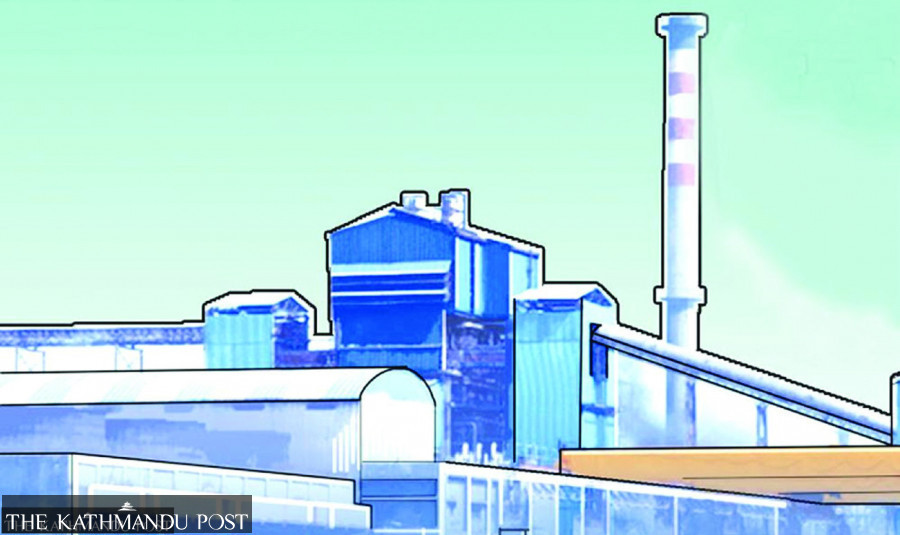Money
Unannounced power outage hits manufacturing sector
In Lumbini Province, all factories have started cutting production.
Madhav Dhungana
Jagdamba Spinning Mill in the Lumbini Corridor operates 24 hours. The factory which has been producing yarn and raw materials for textile production, has been exporting 90 percent of its production to India and Turkey.
With the Nepal Electricity Authority's (NEA) unannounced load shedding over the past few days, the factory is facing trouble.
"The factory has reached the verge of shutting down after not being able to operate on diesel, whose costs are high,” said Chiranjibi Rayamajhi, the director of the factory.
Recently, the NEA had given verbal instructions to industries that consume more than 1,000 KVA of electricity, not to run the industrial plants, except for lighting, from 7 am to 11 am and from 5 pm to 10 pm.
Not only did the spinning factory, but all the big factories in this region have been affected by the recent directive of the NEA.
Due to the unannounced load shedding, steel, cement, aluminium, food grains, and pharmaceutical industries of this region have been adversely affected. The cost of production too, has started to rise due to power cuts, said the entrepreneurs.
“The cement industries which were almost shut down have been hit by the power cuts," said Raviranjan Gupta, general manager of Brij Cement Industry, which is located in the Lumbini Corridor.
The cement industry which was on the verge of collapse has been faced with additional trouble due to power cuts. At present, the cement industry is running for only 8-10 hours a day due to a lack of market demand.
Due to a lack of demand for manufactured goods, tardy economic policies of the government, shortage of raw materials, recession and the high-interest rates of banks, some factories in this region have already shut down.
All the factories have been cutting production. Some factories have reduced their production capacity and operate for only 3-4 hours a day, so the power cut by the authority is not making much sense to the industry.
"At a time when the industry has reached a situation of being non-functional due to the government's economic policy, the power cuts do not matter,” said Bishal Goenka, director of Bhairahawa-based Gharana Foods.
“Due to shortage of wheat, all the refined flour factories have reached a situation of shutting down.”
Out of a total of 40 refined flour factories operating in the country, 22 factories have closed down and the factories that are still operating are running only for 4-5 hours a day due to the wheat shortage, Goenka said.
The Indian government banned the export of wheat to Nepal and no initiative from the government has been taken to get the ban lifted. Many iron billets-based steel and wire industries have shut down due to low customs rate and excise duty exemption on the import of sponge iron and the increase in the import of MS wire than regular.
More than two dozen big factories in the Bhairahawa area consuming more than 1,000 KVA have been verbally requested not to operate their factories during the specified time, according to the NEA’s Bhairahawa Distribution Centre.
Awadhesh Kumar Duve, the head of the Bhairahawa distribution centre said that due to the reduction in electricity production and India not supplying sufficient electricity, there is a shortage of electricity in the area.
“There is an electricity shortage everywhere and due to the same reason, the electricity supply has been reduced.”
But he added that the power line of industry has not been cut.




 22°C Kathmandu
22°C Kathmandu














